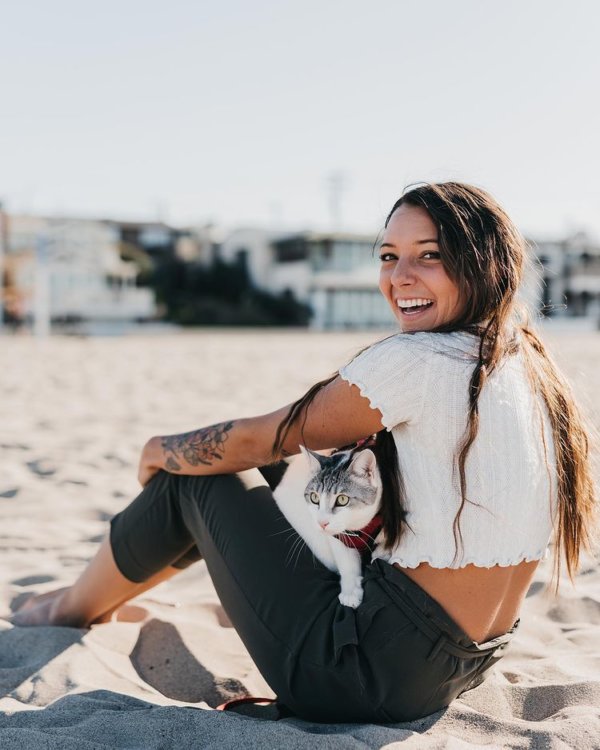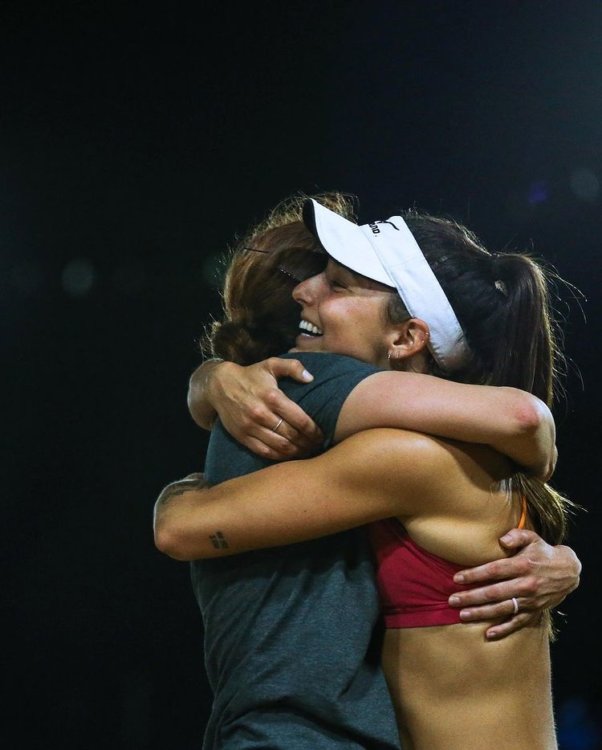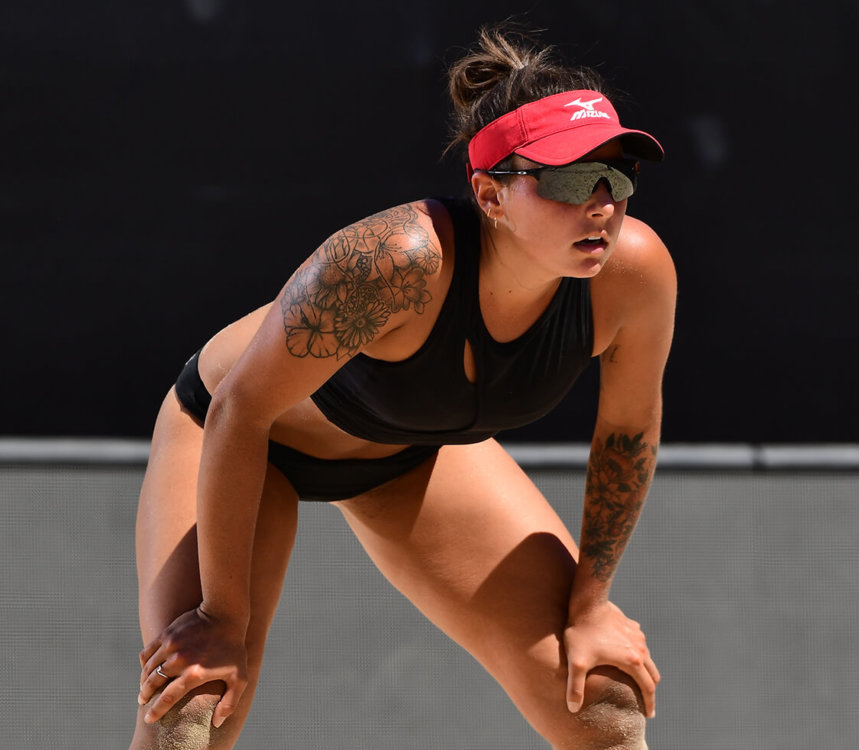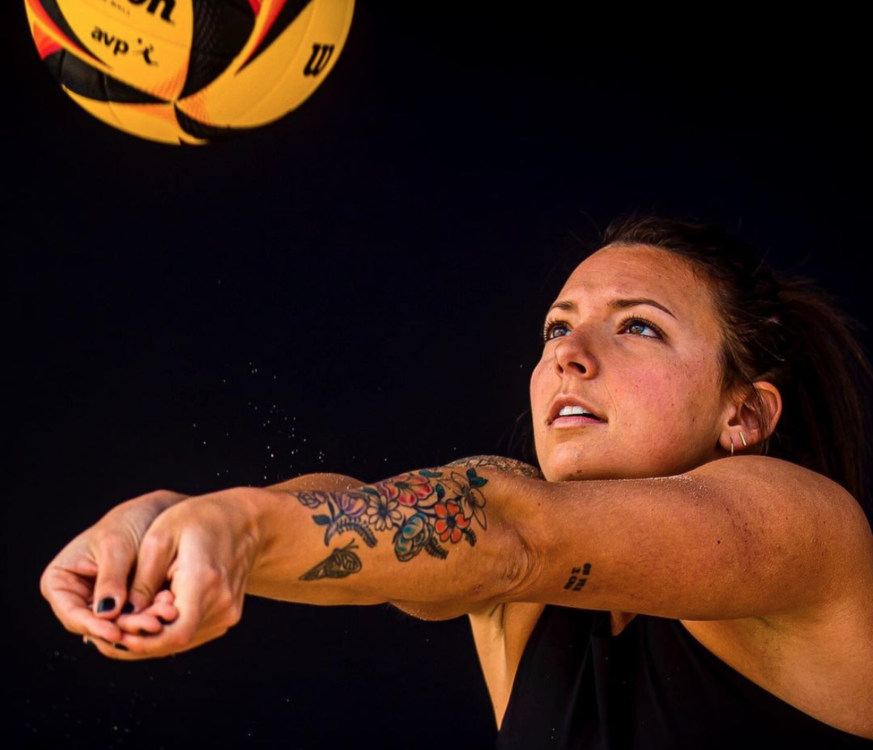
Deprecated: advanced-ads-can-display is deprecated since version 2.0.0! Use advanced-ads-can-display-ad instead. Use advanced-ads-can-display-ad instead. in /var/www/html/wp-includes/functions.php on line 5236
Deprecated: advanced-ads-can-display is deprecated since version 2.0.0! Use advanced-ads-can-display-ad instead. Use advanced-ads-can-display-ad instead. in /var/www/html/wp-includes/functions.php on line 5236
Trigger warning: This series of articles will touch on sensitive topics, specifically regarding disordered eating and negative body image. Please proceed with caution and grace for yourself and your peers if you decide to continue reading.
Molly Turner recently opened up to me about her eating disorder (ED). Molly candidly outlined how her ED began, the toll it took on her physical and mental health, and the struggles she went through as an AVP athlete. Before reading this, I highly recommend starting there.
Because now, we get the happy stuff. The part where Molly did the hard work of facing her ED, going to therapy, and applying what she learned to her everyday routine. And while I’m thrilled to share her success, I know not everyone who struggles with disordered eating and body image issues (i.e., basically all of us) is in the same headspace as Molly. So I want to reiterate – please read this story with grace for yourself and hope for your own journey.
Ok, back to Molly. We left off the last piece around the beginning of the COVID-19 quarantine. Molly was coming off the most challenging AVP season and offseason of her life, a time when she was starving and overworking her body. When the world shut down, Molly was without work and living alone with her cat Jasper. She had nowhere to go but deep inside herself.

“I don’t want to say that I’m the only person that went through a life realization in 2020,” Molly says. “And I don’t want to say that I lost weight and now I’m all better. But I did start to appreciate my body.” Without volleyball, most AVP athletes were forced to reckon with a huge missing piece of our identities. We didn’t have our job, our volleyball social life, or the amount of exercise we’re accustomed to. For many of us, this was the longest we went without volleyball since before we started playing.
“I feel like everyone went through a life-changing situation or realization in quarantine. Of course, mine was focused on my body because that was the thing I thought about most. I live by myself; I literally was alone. And as much as I had a very tough mental few months when it started, eventually, I was like, ‘No. Screw this eating disorder. I’m done. I’m so done with it. I can’t do this anymore. I can’t keep starving myself.’ I was constantly thinking about food and body-checking. So I just decided to start radically loving my body and appreciating it for what it could do, not what it looked like.”
Molly’s transformation transcended her mental shift as she also naturally changed her physical training regimen and eating patterns. “We didn’t have volleyball for so many months, so I started to lift again. I had to fuel to recover and realized I need to listen to my body. When I did that, my body responded.”
Molly also worked with an Eating Disorder Therapist once a week, a woman Molly adores and owes her fuller life to. “Therapy is changing my mentality. It’s not the easiest thing to do. I get super triggered by daily stuff. I get triggered by little comments all the time. But with work, those triggers aren’t as loud. My inside voice isn’t as loud anymore.
“But it’s still very much there. Which is why I surround myself with a team of people – a support system. That’s why I talk about my ED and hope others also do. When I was handling it alone, I was in so deep. But once I shared and opened up, this incredible support system grew around me.”

When Molly looks at her recovery, she credits most of it to that support. “I have a lot of good people reassuring me in positive ways. Specifically, my therapist – that woman is like everything to me. She really has helped me.”
For the past year, Molly has been successfully navigating recovery. She’s listening more to her body’s cues and less to the negative voice in her mind. But her path isn’t clear of debris. As with most people, it never fully will be.
“You know, I’m still going through an eating disorder. I’m not completely out of it. But my mindset is totally different. I’m trying to love my body; I’m starting to appreciate it. And although I have bad days, I just have to rely on what I know. Which is listening to my body and eating when I’m hungry. And understanding that every single woman I practice against is experiencing the same thing. Even if they have visible abs. Everyone’s going through it.”
Once Molly realized she wasn’t alone, her shame diminished. She felt empowered and in community, and she wanted others to feel the same. Molly started a blog for two reasons. One: to have a place to journal and process life through written words. Two: for others in various stages of EDs and body image issues to have someone to relate to.

“I’m in a better spot because of my blog. I’ve had hundreds of people reach out, which is really shocking. A lot of them are young athletes in college telling me their stories. Sometimes it’s scary trying to respond healthily. I just tell my story and where I’m at right now. And try to assure them that it gets better.
“It breaks my heart that this is so common. It’s so uncomfortable for people to open up, to be vulnerable. And that includes me. Each time I post a blog, I cringe, and I close my computer. I just sit there, feeling so uncomfortable. I’m contemplating if it was too much and if anyone’s going to relate. There are some times where I’m so open and wonder, ‘Do other people do this?’ Like maybe I’m touching on a topic that’s too extreme. Maybe a lot of the people reading aren’t at this level. And it’s uncomfortable.
“Sometimes, I even wonder if I’m lying to myself. Because sometimes I’ll write about stuff I used to do, but then I catch myself doing it still. So I think that’s one of the hardest parts; I try to be open with it. Like I’m not out of this stage of my life. I’m still going through it.”
If you’re looking for help with an eating disorder, the National Eating Disorder Helpline offers live chat, call, and text support. If someone you know is battling an ED, the Center for Change offers advice for supportive actions and language.

The AVP is the longest-standing American beach volleyball organization, facilitating tournaments nationally, developing players, invigorating communities through sport and promoting beach volleyball. This contributor is part of our Fair Dealing Policy: https://media.momentumvolleyball.ca/fair-dealing-policy/

Collegiate
Bears fall to Brandon in national final

Collegiate
Game Day Preparation pt.1

Collegiate
All-Access – McMaster Men’s Volleyball

E-Sports & Digital
UNLOCKED ALL STAR MODE!!! | The Spike Gameplay Episode 27

E-Sports & Digital
EVERYONE MAKING VOLLEYBALL GAMES!!! | 80’s Volleyball Gameplay











